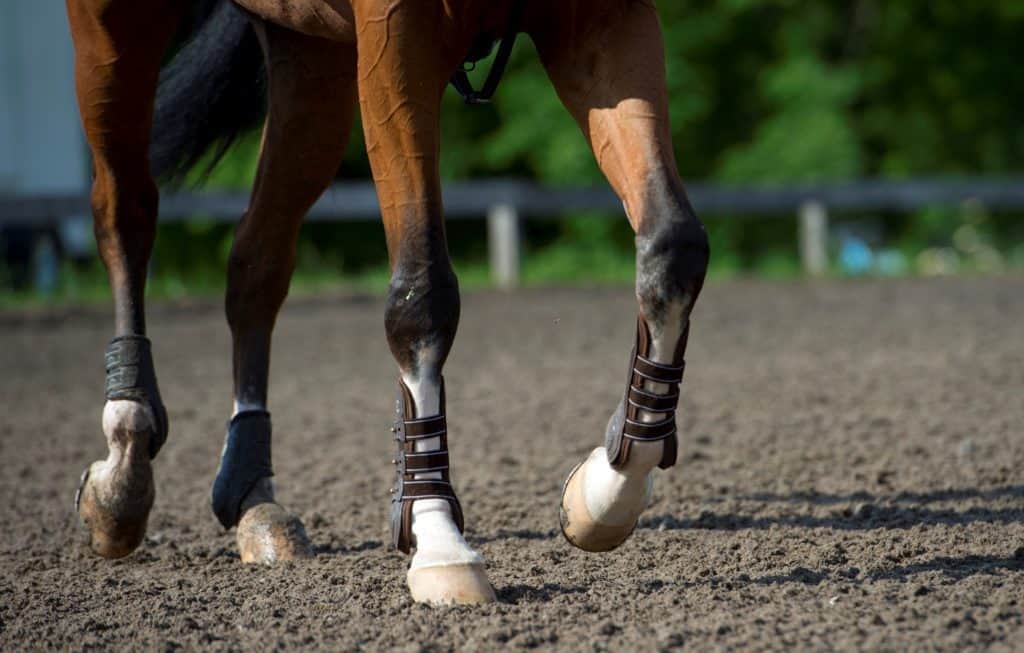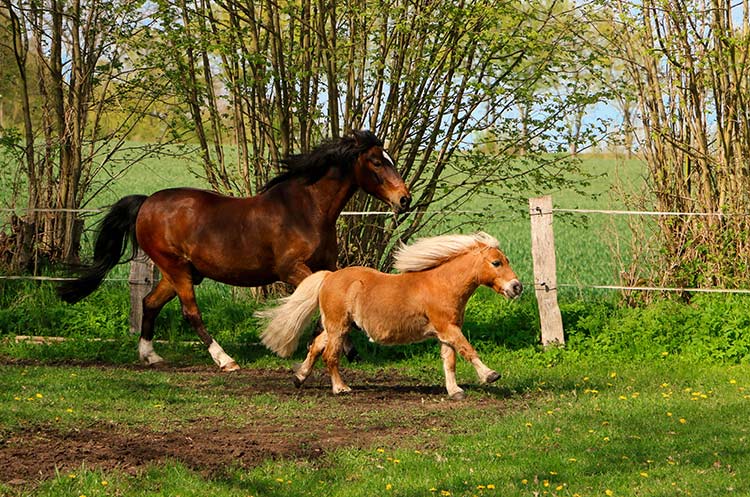
Vets Consider Safety, Efficacy of Repeat Corticosteroid Joint Injections in Horses
Data show frequent use of this OA treatment over time could be harmful in horses.

Data show frequent use of this OA treatment over time could be harmful in horses.

Veterinarians: Follow these 4 steps to maximize the success of injections in this region of the horse’s neck and minimize the risk of complications.

A nutrition expert offers advice for ensuring free-fed horses don’t overeat hay.

Researchers believe this treatment might be more effective for treating osteoarthritis in horses than traditional methods. Here’s why.

Ditch traditional bran mashes (and the issues they can cause) for forage feeding to keep horses warm.

Are you thinking about breeding an older mare? There are steps—some simple, some cutting-edge—breeders can take to obtain foals from mares with waning fertility.

Dr. Luke Bass describes the unique joint changes that might be seen in horses with PPID and EMS.

Dr. Howland Mansfield describes signs a horse is ready to retire from riding, ranging from mild work intolerance to lameness.

Obesity could cause increased damage to your horse’s joints. Here’s why.

Dr. Luke Bass explains why injecting your horse’s joints too frequently might be harmful or reduce treatment efficacy.

Equine practitioners are using recent research in their day-to-day practice to diagnose PPID, EMS, and ID.

Learn how to maintain your senior horse’s joints so he stays comfortable into his later years. Sponsored by American Regent Animal Health.

Learn about feeding basics, from hydration and forage to feeds and supplements, so you can make the best nutritional choices for your horse.

Is your feed room overflowing? Get advice on streamlining equine diets when you’re feeding horses with a variety of nutritional needs.

Learn how to design a diet for horses suffering or recovering from equine odontoclastic tooth resorption and hypercementosis (EOTRH).

Poor air quality from wildfire smoke can be very dangerous for horses. An equine internal medicine specialist offers advice.
Stay on top of the most recent Horse Health news with
"*" indicates required fields